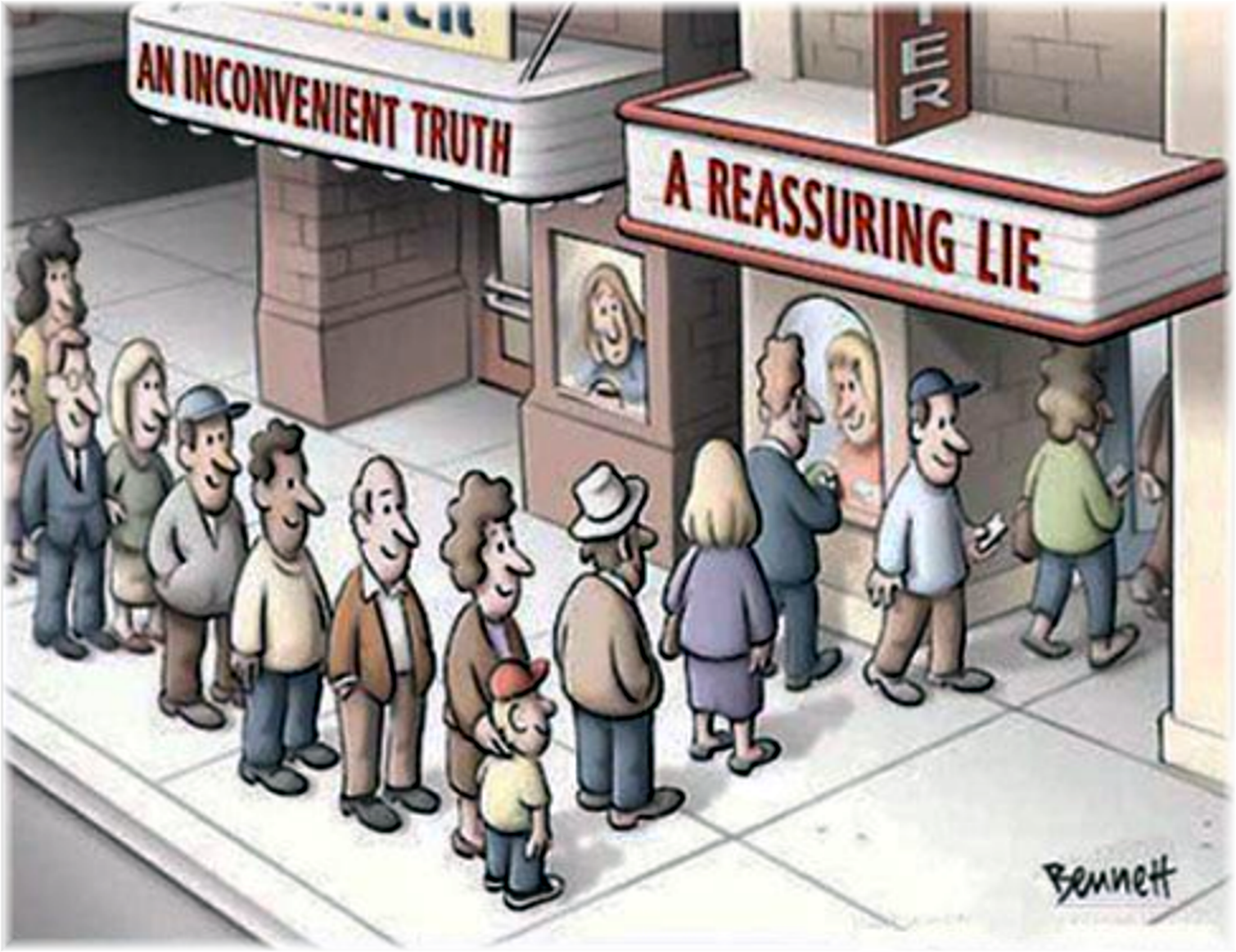Lies Over Truth

There are some people who prefer lies over the TRUTH. They are addicted to lies; they are like religious fanatics when it comes to lies. Even if you show them irrefutable evidence and the testimony of several reliable witnesses, they will still believe the lies. To believe the TRUTH, any TRUTH, would mean that every lie they ever believed could be wrong.
Dr. Brent Brenner put the problem this way in a recent Psychology Today article…” The psychology of disinformation is more important now than ever. Our fates literally depend on how we navigate the information landscape. Because of social media and information technology, and how tightly glued we are to our screens and scrolls, the innate capacity of the human mind to fool itself is amplified manifold.” In other words, we are more susceptible to lies and deliberate manipulation of the facts than ever.
Why does some misinformation “stick” in the public consciousness? Why do people continue to believe untrue things, even after they’ve been shown to be a lie? Researchers at The University of Western Australia say that rejecting information requires more cognitive effort than simply accepting that the message is true. It’s easier for a person to believe a simple lie, than to have one’s mind changed by information that is new and novel.
An article in PsychCentral also supported this premise. Researchers there noted that “Misinformation is especially likely to stick when it conforms to our pre-existing political, religious, or social point of view. Because of this, ideology and personal worldviews can be especially difficult obstacles to overcome. This means that if you believe something for political or religious reasons, it’s far harder to change a person’s mind and have them understand a fact that differs from that person’s opinion.
Lying is so prevalent today that it has become very difficult to find TRUTH. TRUTH often hurts, especially when we are emotionally invested in the lies. So, when does the TRUTH hurt and when do we actually prefer a little alternative reality?
The good news, according to a recent study (Psychology Today), is that many of us are embarrassed that we like liars: Voters are far more likely to say they support a particular candidate proven to lie, if they answer in an online poll instead of a live telephone interview. Another perspective, not only do people routinely lie to each other when dating but, surprisingly, many people accept deception as a routine part of the courting ritual. “The TRUTH is rarely pure and never simple,” suggested Oscar Wilde.
The argument against lying is strong but is it strong enough to change our ways. Abraham Lincoln shared some wisdom on the subject when he said, “No man has a good enough memory to be a successful liar.” Mark Twain concurred in stating that “If you tell the truth, you don’t have to remember anything.” This quote by an unknown author emphasizes the fact that lies may have short-term gains, but the truth will always outlast them in the long run. “Honesty is more than not lying. It is truth-telling, truth-speaking, truth-living, and truth-loving.” Honesty may require patience and perseverance, but it is always worth it in the end.
Both lies and TRUTH will be tested to the MAX in the upcoming political season. The contest between the two started in 2020 when Trump accused Biden of “stealing” the election. It has continued with false allocations, uncovered evidence, political corruption, the weaponization of various departments of state, congressional inquiries, legal court cases, and apparent convictions. Who and what do you believe? To whom are you listening to get real facts?
Will the presidential election hinge of convictions, corruption, facts of the economy or illegal immigration, cognitive abilities, or other factors. Will voters believe lies or TRUTHS. Will people change their loyalties and support based upon inflation, safety and security, women's rights to their own bodies, or available jobs. Will my TRUTH or your TRUTH prevail or will we become even more divided as a nation.
I’ve just started a book by Lisa Earle McCleod called the Triangle of TRUTH. It is based upon trying to find the Higher-Level Solution between My TRUTH and Your TRUTH. Instead of trying to compromise in the middle or fight about who is right and wrong, the Triangle of TRUTH provides a model for redirecting energies, honoring the TRUTH on both sides. It is somewhat easy to understand, but difficult to implement because many problems, especially high emotion problems, do not have apparent solutions.
In my search for TRUTH in a divided world I believe that it can be an important tool and I look forward to finishing the book and applying the process. Albert Einstein said, “We cannot solve the problems of today with the level of thinking that created them.” Hopefully this might be a higher level of thinking that we need today.
I will keep you posted and explore the Triangle of TRUTH with you in future posts. In the meantime, please share your thoughts, ideas, and experiences with the topic of TRUTH!



